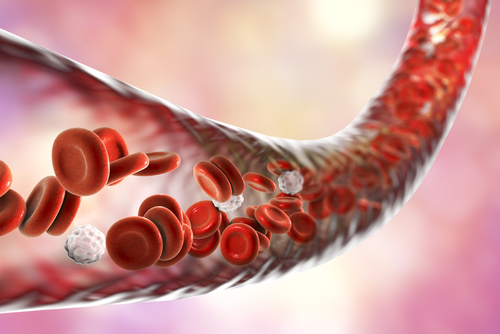Apellis’ APL-2 Receives FDA’s Orphan Drug Designation for AIHA

APL-2, Apellis Pharmaceuticals‘ investigational compound for the treatment of autoimmune hemolytic anemia (AIHA) and other complement system diseases, has received the designation of orphan drug from the U.S. Food and Drug Administration (FDA) for the treatment of AIHA.
“This orphan drug designation represents an important recognition by the FDA of APL-2’s potential to treat AIHA, a rare disease that can lead to potentially life-threatening anemia and hemolysis, as well as other acute complications, and for which there are no approved treatments currently for patients,” Federico Grossi, executive vice president of clinical development and medical affairs for Apellis, said in a press release.
AIHA is characterized by the production of autoantibodies that attack and destroy red blood cells. It includes two variants — cold agglutinin disease (CAD) and warm autoimmune hemolytic anemia (wAIHA) — depending on whether autoantibodies’ binding to red blood cells is easier at lower or higher temperatures.
Both disorders are caused by dysregulation in the complement system — a set of more than 20 blood proteins that are part of the body’s immune defenses — that when overactive, may lead to a series of potentially life-threatening complications, including severe anemia. There are no approved treatments for CAD or wAIHA.
APL-2 is a complement system inhibitor that blocks the activity of the C3 protein, one of the central players in the complement system signaling cascade. The company believes that by targeting the C3 protein, APL-2 may prevent the destruction of red blood cells associated with AIHA.
“This is an important milestone as we build out our pipeline using the systemic administration of APL-2 in rare, complement-mediated diseases, and we look forward to seeing the outcomes of our Phase 2 study,” Grossi said.
The ongoing, prospective, open-label, Phase 2 PLAUDIT trial (NCT03226678) was designed to assess the efficacy, safety, tolerability, and chemical properties of APL-2 administered daily in a group of wAIHA and CAD patients.
Acording to a December 2018 press release, 21 AIHA patients have been enrolled — 12 with CAD and nine with wAIHA — 10 of whom have already been on APL-2 treatment for at least 56 days.
Last December, Apellis announced some of the interim results of the ongoing PLAUDIT trial. The findings were also featured on the poster, “Inhibition of C3 with APL-2 Results in Normalization of Markers of Intravascular and Extravascular Hemolysis in Patients with Autoimmune Hemolytic Anemia (AIHA),” presented at the 60th American Society of Hematology (ASH) Annual Meeting and Exposition in San Diego, California.
“APL-2 reduces both intravascular and extravascular hemolysis [red blood cells’ breakdown inside and outside blood vessels, respectively] and in this study has shown a meaningful clinical benefit in both CAD and C3+ wAIHA patients,” Morie A. Gertz, MD, chair emeritus department of medicine of the department of hematology at the Mayo Clinic in Rochester, Minnesota, and primary investigator of the PLAUDIT study, said in a previous news release.
“Neither of these conditions has an FDA-approved therapy and these patients are in need of an effective treatment. The breadth of activity in these two distinct diseases is impressive. Importantly, APL-2 appears to be safe and well-tolerated in patients with AIHA,” Gertz said.
For now, PLAUDIT is still recruiting patients at several sites across the U.S. and should be completed by the end of 2019.
The FDA grants the orphan drug status to novel medications whose main purpose is to treat patients with a rare disease, which means disorders that affect fewer than 200,000 people in the U.S. The designation comes with benefits, including financial incentives for drug development and commercialization, U.S. market exclusivity for a period of seven years, FDA support for clinical studies, and special fee exemptions and reductions.





